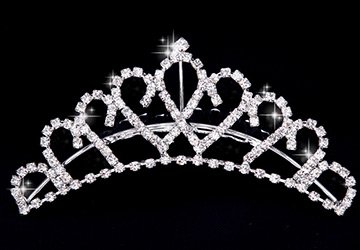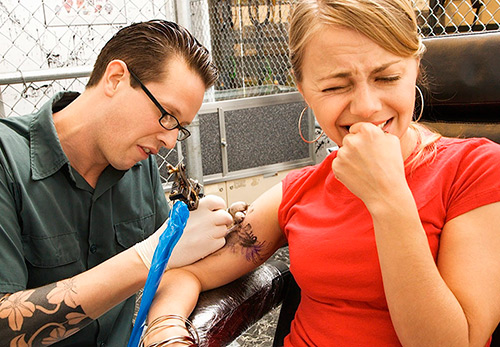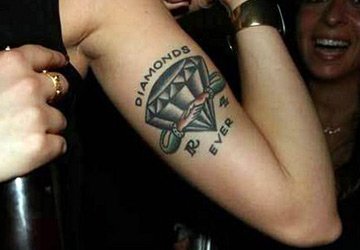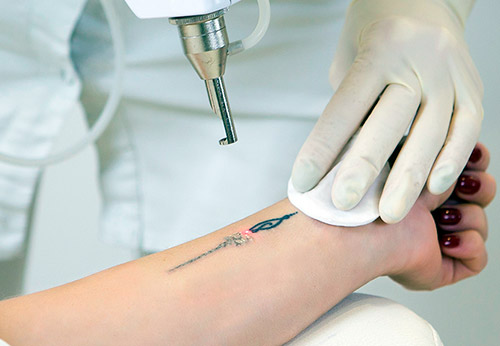Fashion history
Tattoo in history and modernity
Passion for a tattoo, if you can call it that, is gaining more and more followers. In the summer, when everyone strives to dress as openly as possible, it is easy to notice that the painted bodies are becoming more and more. This is quite surprising, given the peculiarities of our time.
Now everything is changeable, as never before in history, people quickly get tired of something, want something new, and in general everything is in constant motion - we constantly wish for new acquisitions, new impressions, new experiences. But with a tattoo on the contrary, it is static. Having got the drawing on the body, we cannot easily change the plot or get rid of the tattoo altogether. Why, then, is tattoo popular?
Most importantly, the popularity of tattoos is growing in all segments of the population, even in the most cultured and wealthy! Previously, tattoos were worn by criminals and various punks, but now educated and cultured people. Let's take a look at the history of tattooing and try to figure it out.
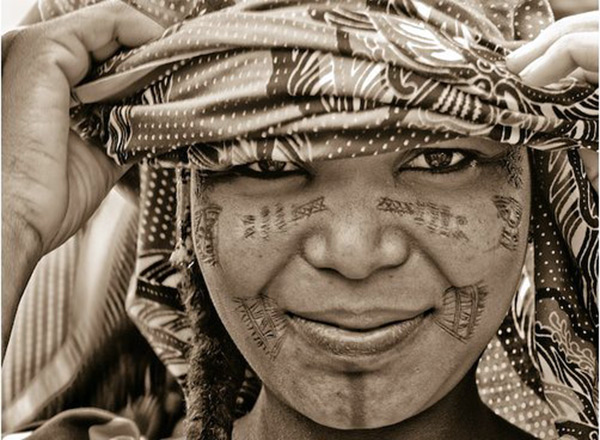
History of tattoo
The word "tattoo" has its roots in the Polynesian languages and means "done according to all the rules." Or perhaps this word comes from the word "tatau" - "to strike" used on the island of Tahiti.
For the ancient Indians, the tattoo had a sacred meaning, helped to demonstrate their status and merit, and was also part of many rituals, including magical ones. The Indians painted the necessary pattern on the body, and then took a sharp shark tooth and turned the drawing into a tattoo with a hammer.
At the same time, the Indians, like many other peoples, sacredly believed in the symbolism and meaning of tattoos, they did not paint whatever was horrible on themselves, but only those drawings that could help them in life, change their lives for the better.
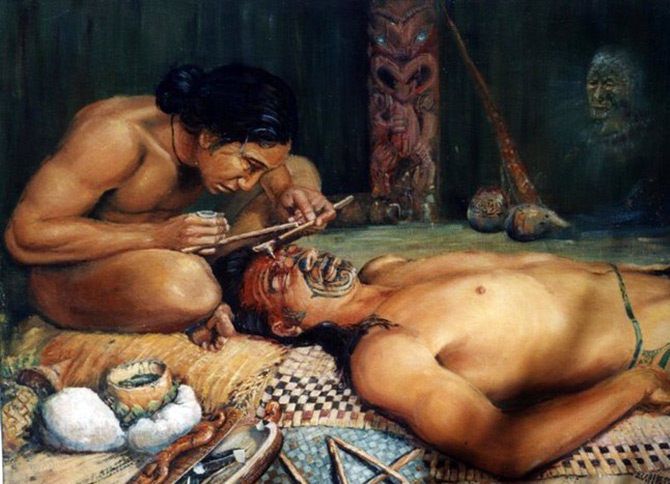
Despite the fact that the ancient people were primitive, did not have the Internet for communication and could not freely and en masse cross the seas and oceans, the tattoo was present in different parts of the planet - in tribes that could not meet in any way.
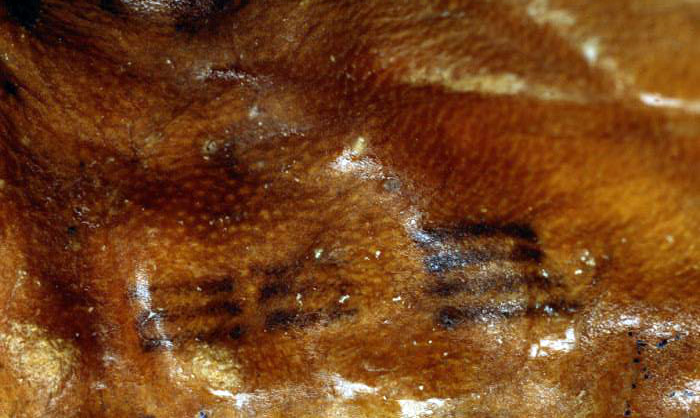
Ancient mummy skin with tattoo marks
The Naga people from the jungle of Indonesia did not have much contact with anyone, but they also had tattoos.
They tattooed the warriors of the tribe - it testified to their strength and achievements. The secrets of the meaning of tattoos were passed down from generation to generation, and only the wives of the elders of the tribe could do them. Each time after a successful hunt, the warrior received another tattoo, and the more prey the warrior took, the more tattoos covered his body.
But not only warriors and hunters adorned themselves with drawings. The tattoo found its place even on the body of girls, who, after the first menstruation, were applied several transverse stripes on the chin and a mysterious ornament on the forehead. These signs supposedly protected the girl from evil spirits. And after marriage, women from the Naga tribe got tattoos on their shoulders.
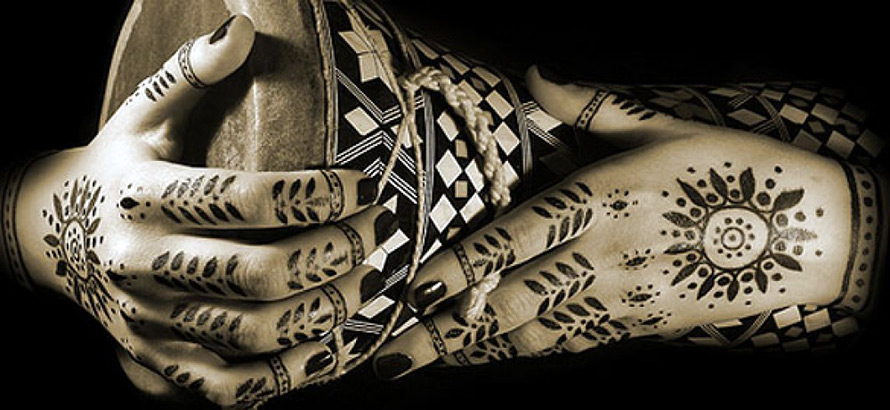
I wonder who could have led people to believe that a tattoo might have any effect on a perfume? Maybe the spirits themselves in this way mocked and mocked primitive people?
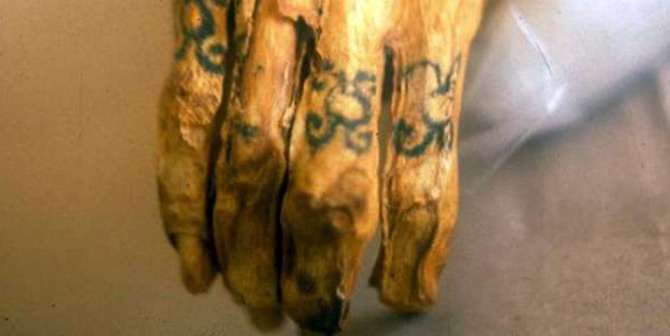
The women and girls of Ancient Egypt lived in a more developed society than the tribes in the jungle, but they also adorned themselves with tattoos. As early as 3000 BC, Egyptian women knew tattoos! Why did they need it?
According to the Egyptian priests, tattoos helped women in pregnancy and childbirth, strengthened their health. The priests communicated with the spirits, from whom they most likely received knowledge about tattoos.
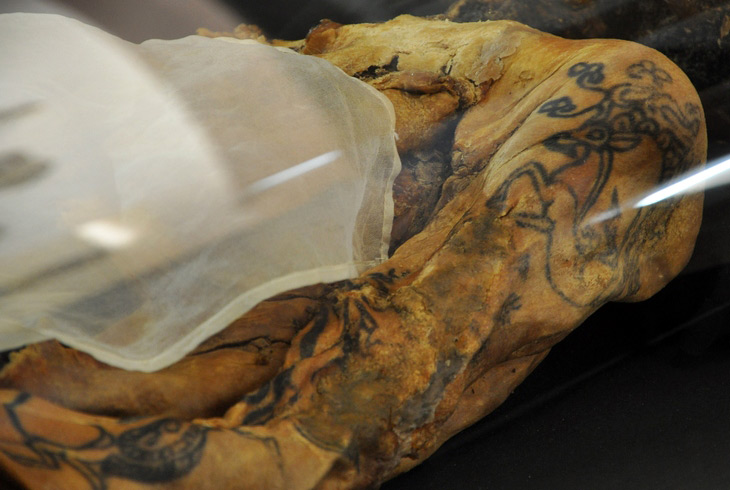
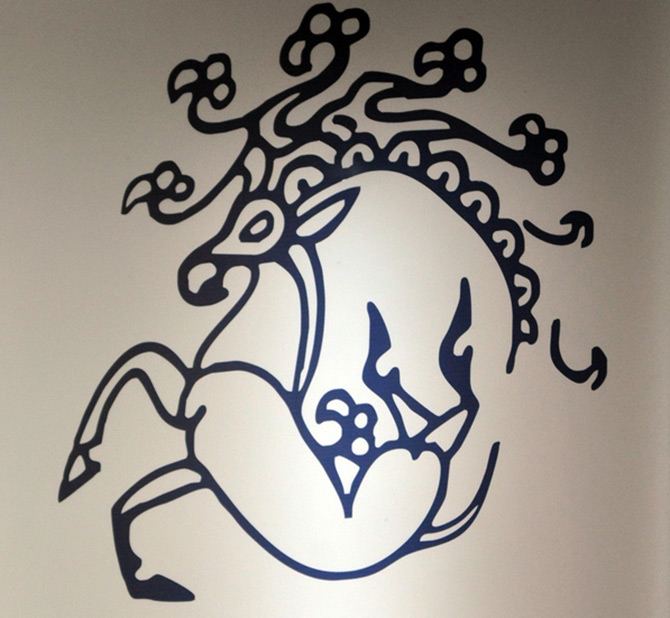
Photos above and below - tattoos of the Altai Princess
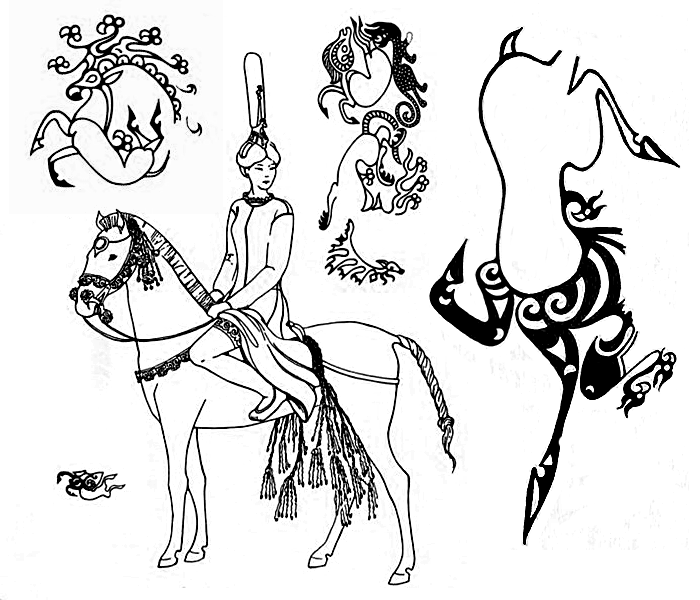
On the territory of modern Russia in Altai, a burial was found in an unusual tomb under a block of ice. She was named Princess Ukok - Altai Princess. The princess's mummy has preserved the tattoos to this day.
In addition to the princess, there were other finds that indicate the love of the Scythians for tattoos. Herodotus wrote on this topic. In his opinion, among the Scythians and Thracians, the ritual of tattooing was carried out only for representatives of the nobility... If there is no tattoo, you are in front of a person from the lower class.
In New Zealand, the Maori became famous for the art of tattooing. Each drawing was an individual, as it were, a personal code of a person, it emphasized the nobility of a person, the antiquity of his family and special merits. Maori women performed special rituals for tattooing around the mouth, according to their beliefs, they retained their youth and beauty for many years.
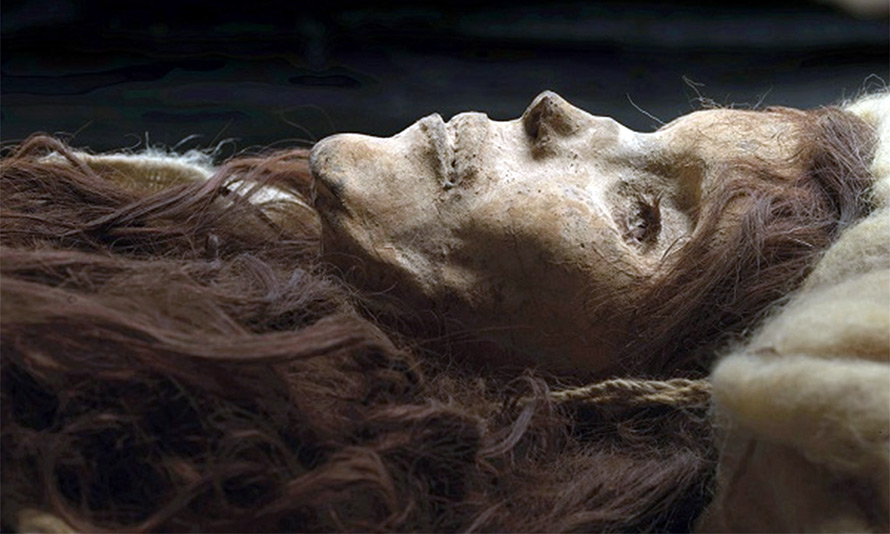
Mummies with traces of tattoos have been found in various parts of the Earth; statuettes and various images of people also testify to tattoos.
Why did ancient people from different parts of the earth get tattoos, how did they come to this idea, because they did not have direct communication and did not transfer knowledge? There may be many theories on this score, but if you think deeply, you can understand that the desire to get a tattoo to our ancestors was whispered by various spirits with whom their shamans and priests communicated.
Modern people often do not believe in spirits, now there are almost no shamans left, and priests are found only on the pages of books, but this does not mean that the spirits have disappeared and stopped whispering to us different desires.
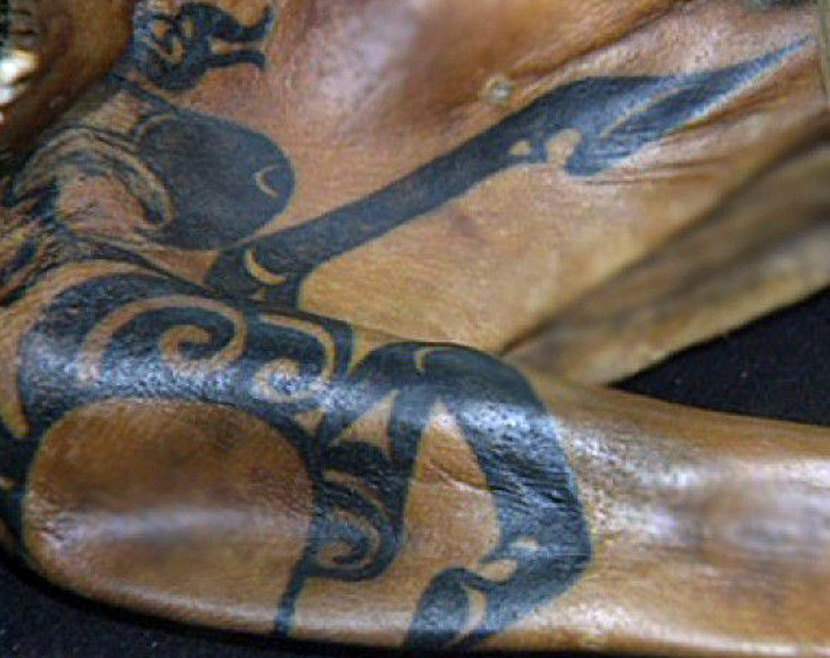
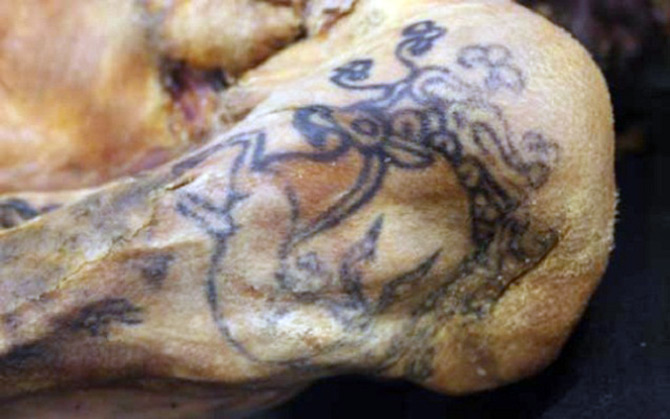
Photo above - Altai Princess and her tattoo
Photo below modern copy
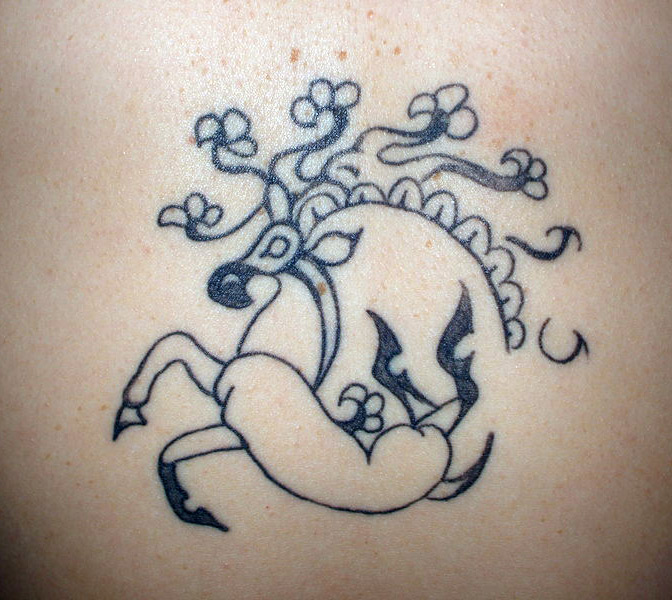
Looking at history, you can see that tattoos were abundantly covered the bodies of people before the advent of Christianity. When Christianity was established, the tattoo lost its popularity, and the current growth in the popularity of tattoos clearly shows the loss of the influence of Christianity on the consciousness of people. In general, people are returning to pre-Christian origins, pagan religions are being revived, and much more that was unthinkable in the Christian period.
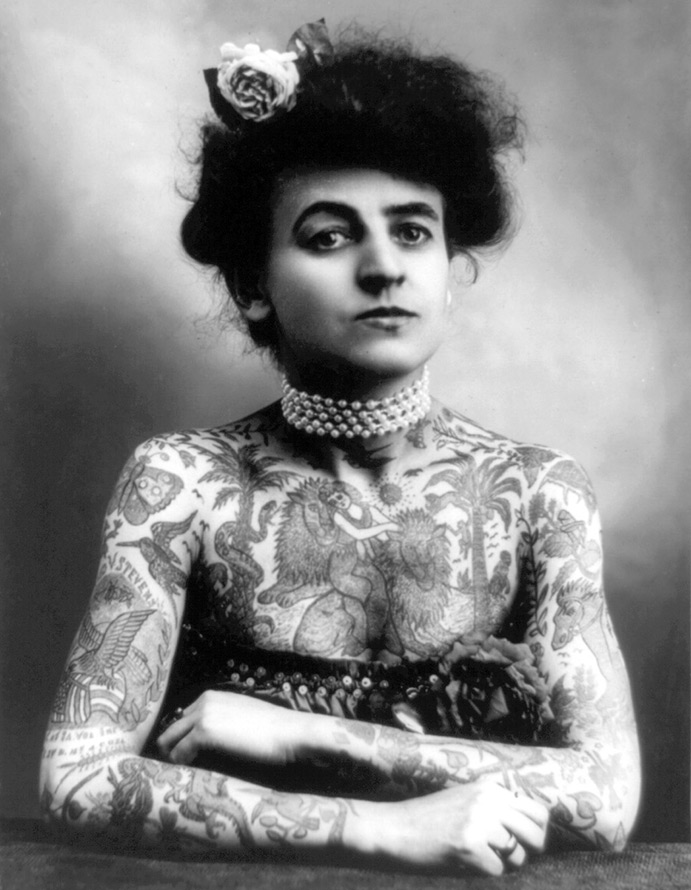
There are other reasons as well. As we have already said, the modern world is changeable, and we always want something new, but at the same time we want something permanent that taxes and crises cannot take away. Tattooing becomes this permanent for some people.
In a society that lives on the principle of "used and thrown away", people begin to put indelible drawings and symbols on their own bodies, because this accompanies them until their death. Tattoo is the only lifelong capital that no one can take away from them until the very end!
In addition, a tattoo makes it possible to stand out and declare your own uniqueness. For some, a tattoo demonstrates self-confidence, a bright personality and a certain toughness.
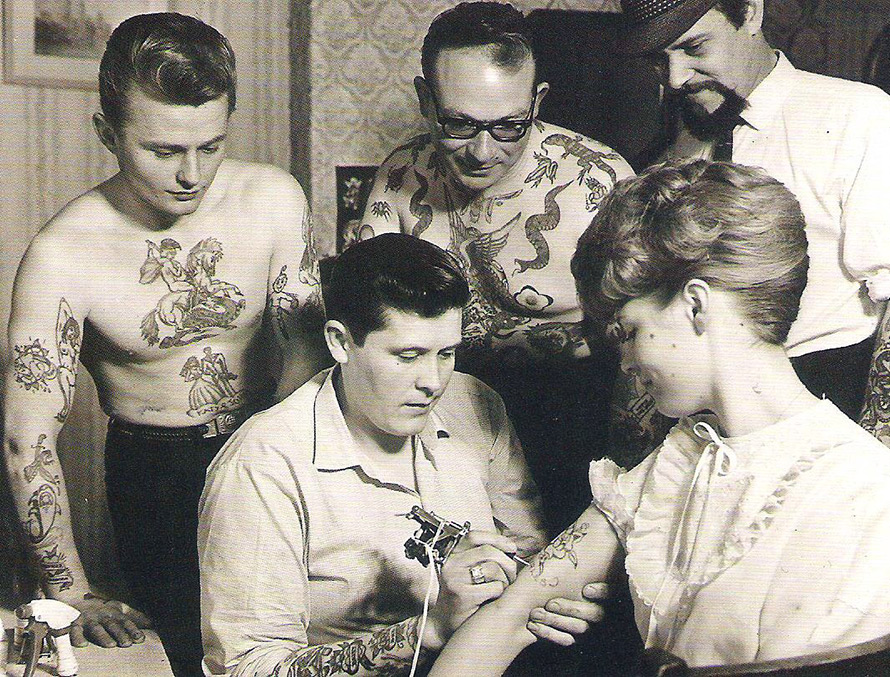
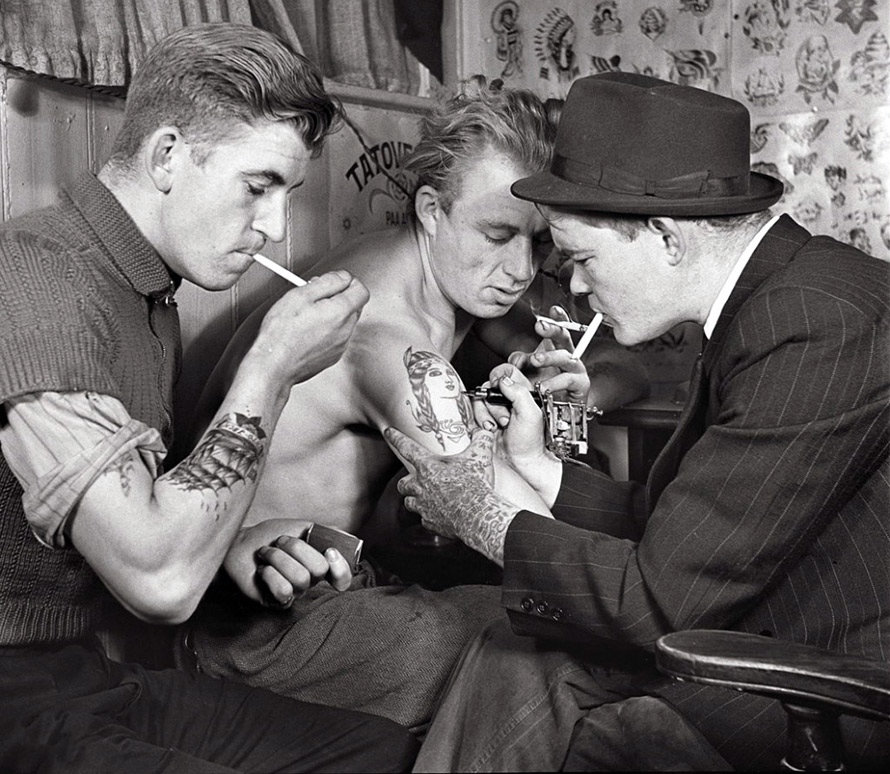
Girls tattoos attract eyes to certain parts of the body and are designed to enhance their attractiveness and sexuality, which is very important now, because there are a lot of seductive girls around and you need to somehow stand out among your rivals.
Therefore, in the understanding of certain people, a tattoo actually becomes capital and even an investment in oneself, in one's life.
Although in truth a tattoo is a very dubious capital, it is easy to apply and easy to display. Knowledge is also capital for life, knowledge and education cannot take away crises, but knowledge is much more difficult to acquire.
Now we know the history of tattooing and can understand the reasons for its popularity.
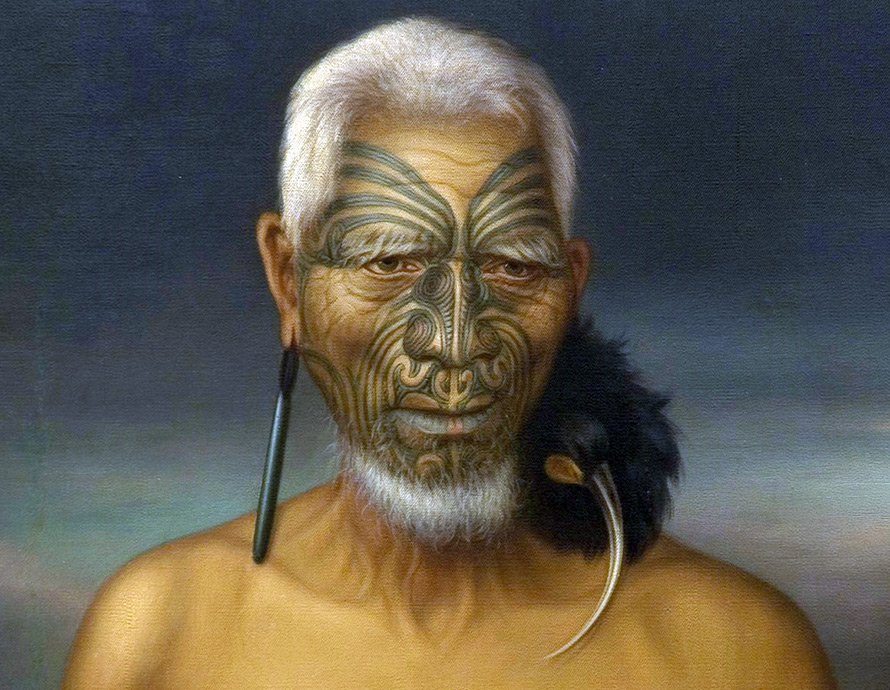
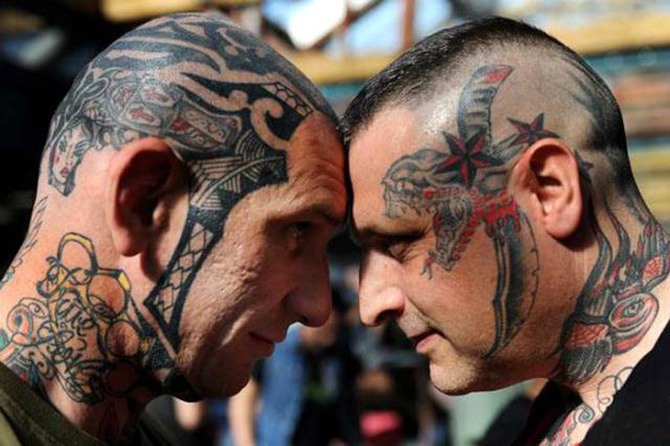
Comments and Reviews
Add a comment
Rating news
Shades of clothing that make women look younger
What shades of hair make women younger: rules and photos
Funny wedding dresses - photos and ideas
12 most expensive down jackets for the winter
How to look 25 at 40: tips from supermodels
Beautiful schoolgirls
Anti-aging haircuts and hairstyles for women
Fashionable skirts for autumn and winter
Fashionable women's trousers for the cold season
Fashionable and stylish sandals for summer 2024
Spring-summer 2024
 Fashionable dresses and tops with thin spaghetti straps
Fashionable dresses and tops with thin spaghetti straps
 Bandana tops: how to wear stylishly and beautifully
Bandana tops: how to wear stylishly and beautifully
 How to put together the perfect men's wardrobe for the summer
How to put together the perfect men's wardrobe for the summer
 Fashionable shorts for spring-summer 2024
Fashionable shorts for spring-summer 2024
 Fashionable skirts for spring-summer 2024: a guide to online shopping
Fashionable skirts for spring-summer 2024: a guide to online shopping
 The most fashionable dresses spring-summer 2024: styles and colors
The most fashionable dresses spring-summer 2024: styles and colors
 Fashionable total look 2024: ideas of images and trends
Fashionable total look 2024: ideas of images and trends
